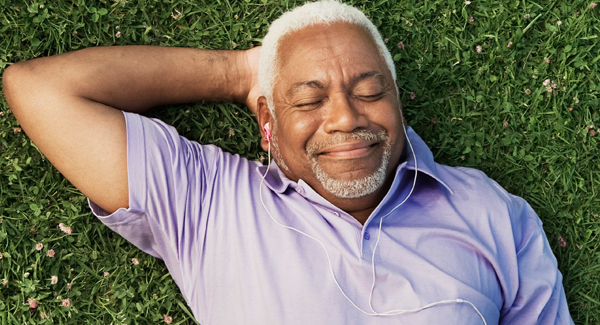Managing Stress to Live Healthy With Arthritis
Anxiety affects as many as 1 in 3 people with arthritis, and fears about the new coronavirus only makes it worse. Try these coping strategies to reduce stress and anxiety, and stave off more pain.
By: Beth Axtell
The strain of coping with arthritis can amp up stress and anxiety – a condition that affects as many as 1 in 3 people with arthritis – and fears from the new coronavirus threat only make it worse. Stress, in turn, can worsen the symptoms of chronic diseases and contribute to a host of other problems.
“When we are stressed or perceive a threat, our body responds with physiologic responses that prepare us to fight or escape the enemy,” says Rudy Nydegger, PhD, a clinical psychologist and professor emeritus at Union Graduate College in Schenectady, N.Y. “Our heart rate and breathing speed up, our muscles tense and blood flow to the brain increases, putting us in a state of high awareness.”
That reaction can protect you if the enemy is an attacking tiger. But when ongoing stress leads to anxiety, it can make your super-aware of symptoms. For instance, pain feels worse. Along with heightened pain, you also become more vulnerable to infection, heart disease, inactivity, sleep problems, and unhealthy eating habits.
Try these healthy activities to reduce stress and counteract its effects.
Develop your mind-body connection. Your physical body and its pain can affect your thoughts and emotions. Likewise, your emotions and thoughts change the way your body feels. Many activities can help you bring these parts of your total being into harmony. Options include meditation, progressive relaxation, deep breathing, and guided imagery.
Get moving. Regular exercise is one of the most important things you can do to relieve anxiety, because it boosts feel-good chemicals in your brain. It also has many direct benefits for arthritis, including strengthening joint-supporting muscles and helping with weight loss. You can combine mind-body connection work with movement through yoga and tai chi. Get started now!
Talk it out. Talking through your troubles and making human connections can work wonders for relieving your stress. Speak openly to a trusted friend. Join a support group or online community like those available through the Live Yes! community. A more formal option is to seek counseling with a professional. Psychotherapists use cognitive behavioral therapy to help you change the way you think about situations that may be contributing to your anxiety.
Eat well. When you’re stressed, comfort food can feel so … comforting. But that “high” is only temporary. Eat nutritious, anti-inflammatory foods based on the Mediterranean diet to make you feel better in the long run.
Enjoy simple pleasures. Relieving stress doesn’t have to be complicated, time-consuming or expensive. Let yourself enjoy things that bring you peace. Watch a funny movie, paint a picture, stroll through the park, light a fragrant candle, soak in a bubble bath, work in the garden. Take some time away from your daily stresses and just enjoy the moment.
Get a massage. A massage can be both relaxing and therapeutic. It can ease anxiety, pain and stiffness. Go to a licensed massage therapist and discuss your goals. Different types of massage do different things, from working painful knots out of muscles to providing relaxation.
Try medications. If these activities haven’t helped your stress and anxiety, you may want to discuss medication options with your doctor. Antidepressants and anti-anxiety drugs are some of the medications used to treat anxiety. These are often used short-term and should be used with counseling; otherwise, anxiety will likely return when the medication is stopped.
Stay in the Know. Live in the Yes.
Get involved with the arthritis community. Tell us a little about yourself and, based on your interests, you’ll receive emails packed with the latest information and resources to live your best life and connect with others.


